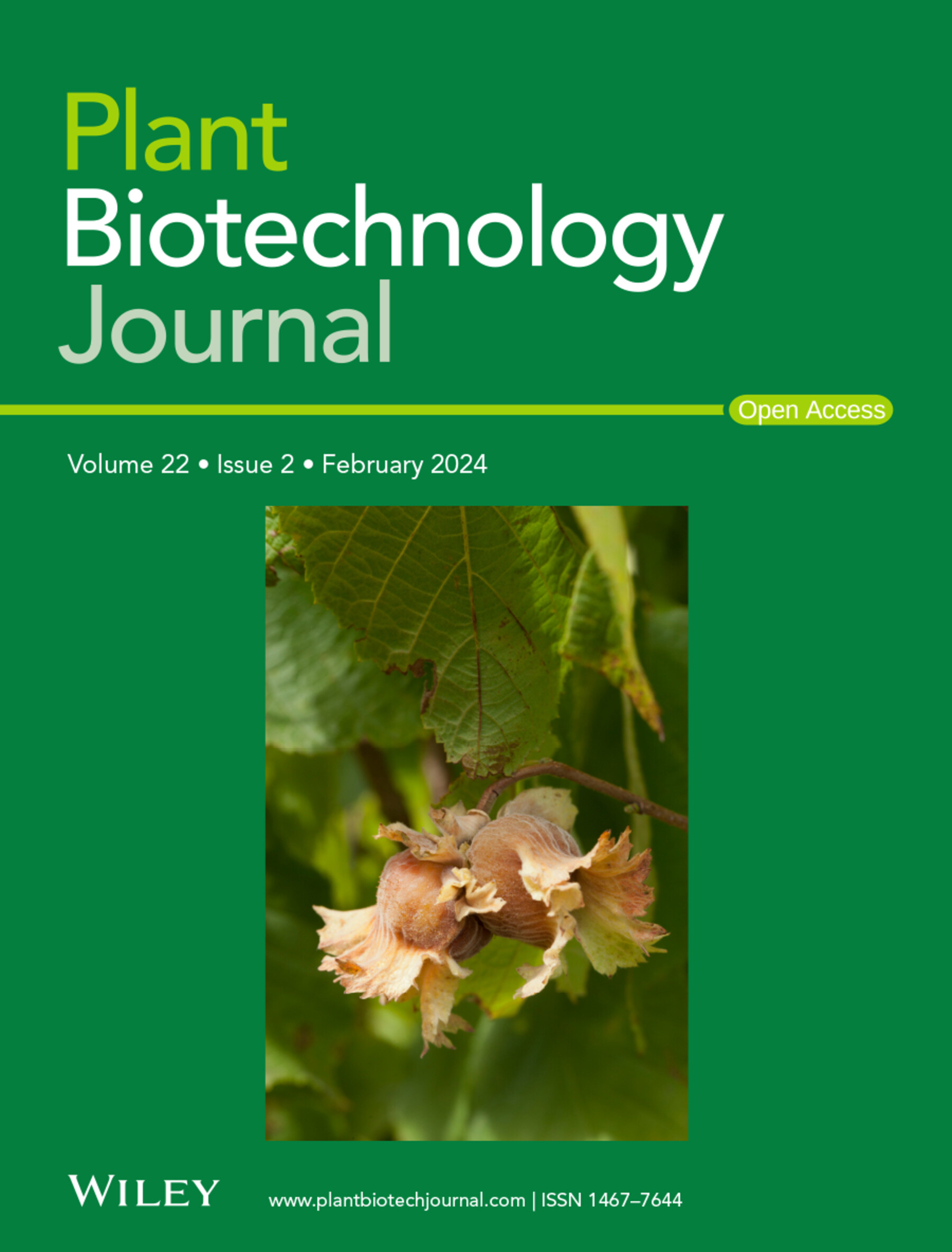The transcription factor OsNAC25 regulates potassium homeostasis in rice
IF 10.1
1区 生物学
Q1 BIOTECHNOLOGY & APPLIED MICROBIOLOGY
引用次数: 0
Abstract
Over-application of potassium (K) fertilizer in fields has a negative impact on the environment. Developing rice varieties with high KUE will reduce fertilizer for sustainable agriculture. However, the genetic basis of KUE in a more diverse and inclusive population remains largely unexplored. Here, we show that the transcription factor OsNAC25 enhances K+ uptake and confers high KUE under low K+ supply. Disruption of OsNAC25 by CRISPR/Cas9-mediated mutagenesis led to a considerable loss of K+ uptake capacity in rice roots, coupled with reduced K+ accumulation in rice and severe plant growth defects under low- K+ conditions. However, the overexpression of OsNAC25 enhanced K+ accumulation by regulating proper K+ uptake capacity in rice roots. Further analysis displayed that OsNAC25 can bind to the promoter of OsSLAH3 to repress its transcription in response to low- K+ stress. Nucleotide diversity analyses suggested that OsNAC25 may be selected during japonica populations' adaptation of low K+ tolerance. Natural variation of OsNAC25 might cause differential expression in different haplotype varieties, thus conferring low K+ tolerance in the Hap 1 and Hap 4 -carrying varieties, and the japonica allele OsNAC25 could enhance low K+ tolerance in indica variety, conferring great potential to improve indica low K+ tolerance and grain development. Taken together, we have identified a new NAC regulator involved in rice low K+ tolerance and grain development, and provide a potential target gene for improving low K+ tolerance and grain development in rice.转录因子OsNAC25调控水稻钾稳态
在田间过量施用钾肥会对环境产生负面影响。培育高速效利用率的水稻品种将减少化肥用量,实现可持续农业。然而,在一个更加多样化和包容性的人群中,KUE的遗传基础在很大程度上仍未被探索。在这里,我们发现转录因子OsNAC25增强K+摄取,并在低K+供应下赋予高KUE。通过CRISPR/ cas9介导的诱变破坏OsNAC25,导致水稻根系吸收K+的能力大幅下降,同时在低K+条件下导致水稻K+积累减少和严重的植株生长缺陷。然而,OsNAC25的过表达通过调节水稻根系适当的K+吸收能力来促进K+积累。进一步分析表明,OsNAC25可以结合OsSLAH3的启动子抑制其转录,以应对低K+胁迫。核苷酸多样性分析表明,OsNAC25可能在粳稻群体适应低K+耐受性的过程中被选择。OsNAC25的自然变异可能导致不同单倍型品种的差异表达,从而使携带Hap 1和Hap 4的品种具有较低的K+耐受性,而粳稻等位基因OsNAC25可以增强籼稻品种的低K+耐受性,对改善籼稻低K+耐受性和籽粒发育具有很大的潜力。综上所述,我们鉴定出了一个新的NAC调控因子,该调控因子与水稻低钾+耐受性和籽粒发育有关,为提高水稻低钾+耐受性和籽粒发育提供了一个潜在的靶基因。
本文章由计算机程序翻译,如有差异,请以英文原文为准。
求助全文
约1分钟内获得全文
求助全文
来源期刊

Plant Biotechnology Journal
生物-生物工程与应用微生物
CiteScore
20.50
自引率
2.90%
发文量
201
审稿时长
1 months
期刊介绍:
Plant Biotechnology Journal aspires to publish original research and insightful reviews of high impact, authored by prominent researchers in applied plant science. The journal places a special emphasis on molecular plant sciences and their practical applications through plant biotechnology. Our goal is to establish a platform for showcasing significant advances in the field, encompassing curiosity-driven studies with potential applications, strategic research in plant biotechnology, scientific analysis of crucial issues for the beneficial utilization of plant sciences, and assessments of the performance of plant biotechnology products in practical applications.
 求助内容:
求助内容: 应助结果提醒方式:
应助结果提醒方式:


